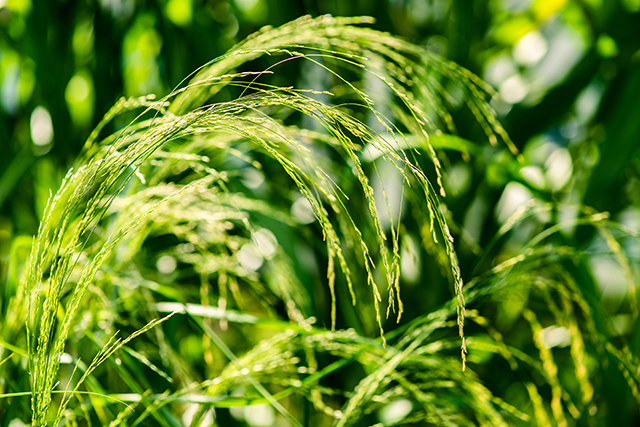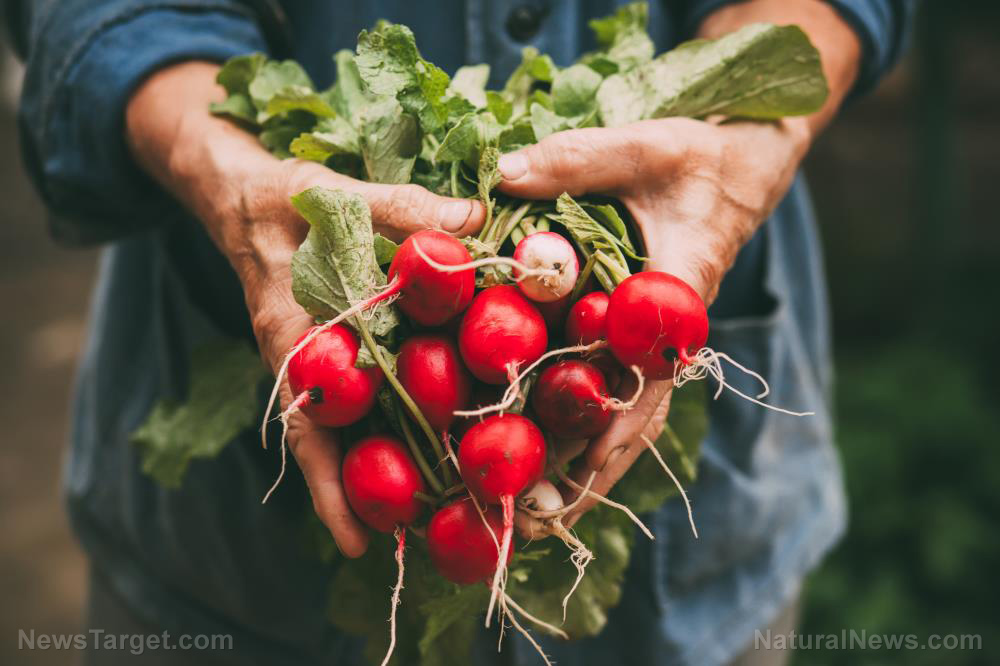Protect your eyesight with powerful, natural foods like BILBERRIES that fight disease and block harmful free radicals
By ljdevon // 2025-04-08
Tweet
Share
Copy

- Vitamin C-rich foods like raw red peppers, strawberries, and citrus fruits strengthen blood vessels and shield against cataracts.
- Leafy greens and eggs provide lutein and zeaxanthin, key defenders against macular degeneration.
- Omega-3s in salmon and flax seeds combat dry eyes and support retinal health.
- Bilberries and eyebright herb, long used in traditional medicine, enhance night vision and soothe eye strain.
- Avoid processed foods—opt for natural, nutrient-dense choices to safeguard vision from oxidative damage.
The science behind eye-protective super foods
The Blue Mountain Eye Study revealed a critical link between B-vitamin deficiencies (niacin, thiamin, riboflavin) and nuclear cataracts, which cloud the central lens. Without these nutrients, the eyes lose their resilience. Fortunately, fortified cereals, whole-wheat bread, and mushrooms offer a simple fix. But vitamin C is another heavyweight champion for ocular health. As the most potent antioxidant for the eyes, it neutralizes free radicals that accelerate cataracts and macular degeneration.- Raw red peppers pack the highest vitamin C concentration per calorie, but broccoli, Brussels sprouts, and strawberries are also powerhouses.
- Dark leafy greens like spinach and kale deliver lutein and zeaxanthin, carotenoids that filter damaging blue light—a major contributor to retinal decay.
- Wild-caught salmon and flax seeds flood the retinas with DHA and EPA, fatty acids that prevent dryness and glaucoma.
Zeaxanthin: A Nutrient with Visionary Benefits
Zeaxanthin is a powerful carotenoid antioxidant found in the retina, particularly in the macula, where it helps protect against harmful blue light and oxidative stress. Alongside lutein, it plays a key role in maintaining eye health, reducing the risk of age-related macular degeneration (AMD) and cataracts. Found in foods like corn, peppers, and leafy greens, zeaxanthin supports visual acuity and may also offer anti-inflammatory benefits. As the body cannot produce it naturally, dietary intake or supplementation is essential. Research suggests zeaxanthin may enhance cognitive function and skin health, making it a vital nutrient for overall well-being.Bilberries and eyebright: nature’s forgotten vision tonics
Long before synthetic eyedrops, herbalists relied on bilberries (Vaccinium myrtillus) for night vision and circulation. During World War II, British pilots ate bilberry jam to sharpen nighttime eyesight—a practice rooted in the berry’s anthocyanins, which boost retinal blood flow. Bilberries, closely related to blueberries, contain potent antioxidants that protect retinal cells from oxidative damage. Research suggests bilberry extracts may improve night vision, reduce eye fatigue, and support blood circulation in the eyes by strengthening capillaries. Similarly, eyebright (Euphrasia officinalis) has been used for centuries to reduce inflammation and ease eye strain. Eyebright, named for its eye-like flowers, has been used for centuries to soothe irritation, dryness, and inflammation. It contains tannins with mild astringent and anti-inflammatory properties, potentially relieving conjunctivitis or allergies. Modern research confirms its flavonoids protect against UV damage and conjunctivitis. Studies also indicate anthocyanins enhance rhodopsin regeneration, a pigment crucial for low-light vision, though results are mixed. Try this:- Steep dried eyebright in hot water for a soothing eyewash.
- Use an eyebright tincture to improve allergy symptoms that bother the eyes.
- Blend bilberries and blueberries into smoothies or consume them freeze-dried for concentrated benefits.
The corporate media’s blindness to natural solutions
While mainstream outlets parrot Big Pharma’s narrative—pushing drugs over prevention—studies prove that diet alone can slash eye disease risk. Yet, just as the left-wing media censors treatments for COVID-19, the flu, measles, and host of other health issues, they ignore the life-changing power of food-based medicine as it applies to eye health. Why? There’s no profit in telling people to eat more dark leafy greens or get more anthocyanins from blueberries and bilberries. While not all eye problems can be cured with foods and herbal medicine, proper maintenance using basic foods is a great way to prevent problems from worsening into old age. Sources include: StudyFinds.org NaturalPedia.com Naturalpedia.comTweet
Share
Copy
Tagged Under:
nutrition antioxidants longevity natural remedies lutein zeaxanthin cataracts omega3 bilberries naturalmedicine foodismedicine healthfreedom eyehealth HealthyLiving VisionProtection NutritionMatters HealthyLifestyle OpticNeuritis EyeStroke InfantEyeHealth NightBlindness MacularDegeneration Floaters OcularHealth EyeProtection ChronicFatigue BoostYourImmuneSystem NutritionForWellness EyebrightHerb PreventDisease HolisticHealth RealFood AntiPharma BlueLightProtection HerbalRemedies
You Might Also Like
Strategic morning light exposure: A natural solution to combat sleep fatigue
By Willow Tohi // Share
Why Matcha Latte fans are obsessed with the ritual, not just the flavor
By HRS Editors // Share
Could antioxidants help kids with autism? Scientists are taking a closer look
By Olivia Cook // Share
Ginger: The healing superfood bridging ancient wisdom and modern science
By Ava Grace // Share
Recent News
Teff: An ancient super grain packed with nutrition and versatility
By lauraharris // Share
Radishes are surprisingly good for you
By newseditors // Share
Big Tech accused of $278 billion tax underpayment over the past decade
By willowt // Share
Strategic morning light exposure: A natural solution to combat sleep fatigue
By willowt // Share










